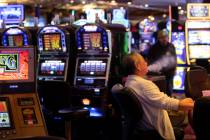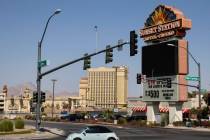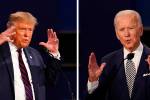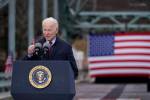Promise of big money fails to lure support for online gaming
WASHINGTON -- Some members of Congress are hoping that the promise of up to $72 billion in new revenue might persuade federal lawmakers and cash-strapped states to allow for online poker and other Internet gambling to be regulated and taxed.
But despite the lure of big money, there is still little consensus whether to legalize online gaming in the United States, if a hearing Wednesday by an influential House committee is any measure.
Leaders of the House Ways and Means Committee gave Rep. Jim McDermott, D-Wash., a forum to promote legislation that would tax online gaming operators and the winners of online contests. It is a companion to a bill by Rep. Barney Frank, D-Mass., that would legalize and license Internet gaming operators and allow them to grow domestically.
On paper at least, online gambling now is not permitted in the United States.
But just as Prohibition in the 1920s failed to stop people from drinking bathtub gin and moonshine, the Internet ban has not stopped gamblers from playing on websites operated from outside the country, McDermott observed.
"We are denying reality," he said. "Driving Internet gambling offshore has been a policy failure."
McDermott would require gaming sites to send tax forms to their customers, making it possible for the Internal Revenue Service to tax winnings.
It also would compel sites to pay taxes on online wagers, including a new tax on the amount of money that gamblers deposit with the sites up front in order to play.
All told, revenues could amount to $72 billion over 10 years, with $30 billion going to states and Indian tribes, he said.
"As far as I know, there is almost no state legislature that is not now underwater and seeking revenue from every possible source," McDermott said.
Reaction was mixed.
Rep. Linda Sanchez, D-Calif., said legalizing and taxing online casinos "creates a much needed revenue stream."
"We are facing an unprecedented debt," Sanchez said. "Today we are discussing a possible revenue stream by taxing an activity that is already taking place offshore."
But Rep. Earl Pomeroy, D-N.D., said, "I find it hard to believe we are going to gamble our way back to a balanced budget."
Pomeroy worried that legalizing online gaming "would place a big federal government Good Housekeeping Seal of Approval that we ought to have more Internet gambling." More online players might mean fewer customers for brick-and-mortar casinos, he said.
Two Nevadans who sit on the committee did not embrace the tax plan.
Republican Dean Heller said he had an open mind on McDermott's bill but questioned its effect on the casino industry. He also said the proposed new "deposit tax" raised a red flag.
Democrat Shelley Berkley said she backs legalizing Internet gambling, but said it is too early to think about taxing it.
"Because the industry is not even established yet, I can't imagine how we can know with any degree of certainty how the special tax would affect operators or customers," she said.
"Let's legalize Internet gaming, regulate it, and watch the industry develop and grow in the United States," she said. "This is not the place to find (revenue) nor the method to get at it. I strongly believe that our economy, our consumers, and the future U.S. internet gaming industry will be better served by legalization and regulation -- not by taxation."
Contact Stephens Washington Bureau Chief Steve Tetreault at stetreault@stephensmedia.com or 202-783-1760.























